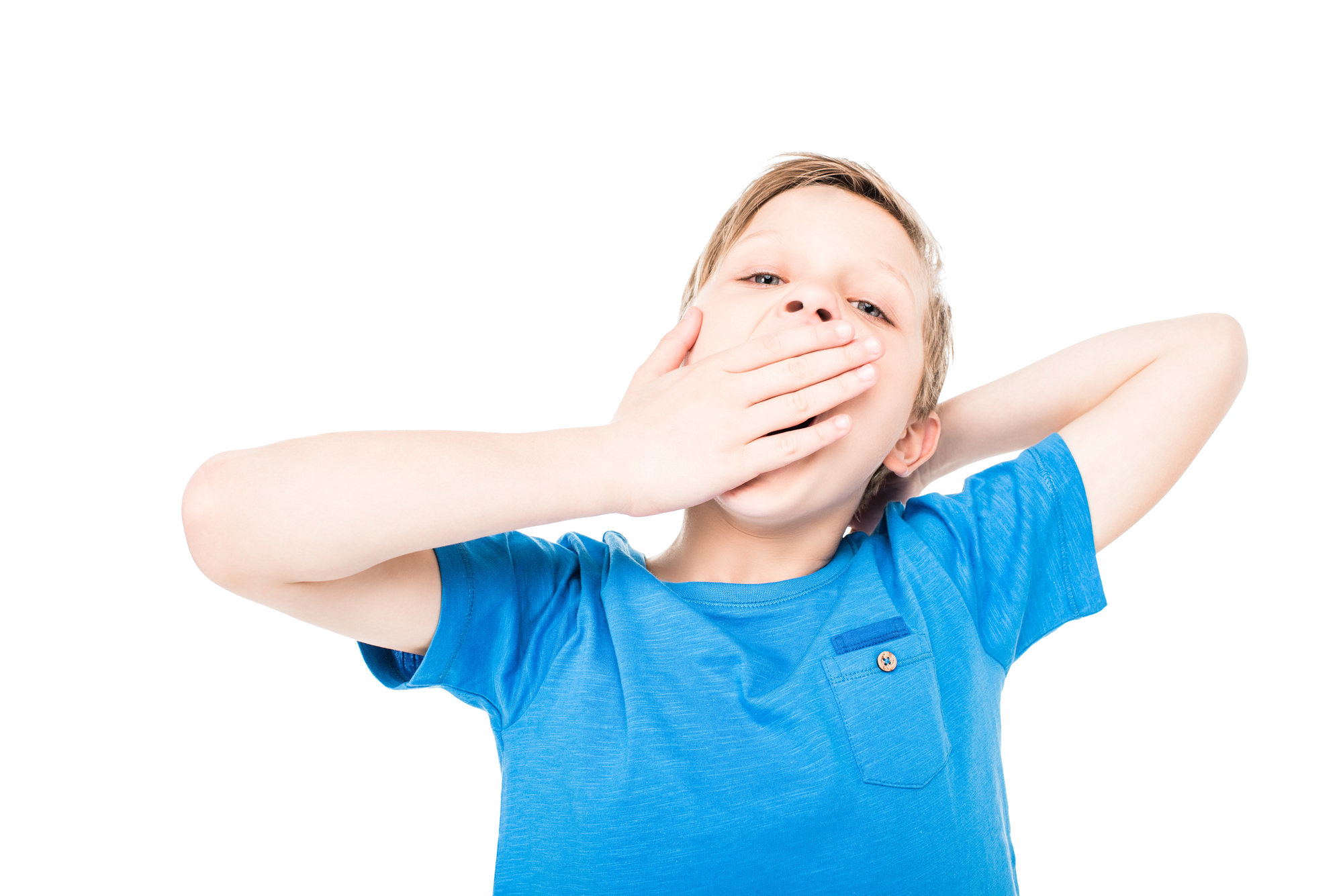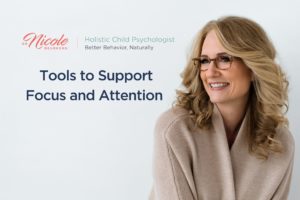In children, symptoms of ADHD and sleep problems are strikingly similar. Are we misdiagnosing children with ADHD when they really have a sleep issue?
Overdiagnosis of ADHD is a big problem, one with severe and lasting consequences for children.
An incorrect diagnosis exposes children to ADHD therapy—usually, medication— that fails to address the causes of their symptoms and puts them at risk of immediate and long-term health issues.
An ADHD diagnosis can stigmatize and isolate children who need community, acceptance, and support. And it delays the effective treatment of the root causes of the emotional, social and behavioral challenges that might have brought about the misdiagnosis in the first place, leaving children suffering and struggling.
In less than 20 years, the prevalence of ADHD jumped from 3 percent of children in the U.S. to 11 percent. With that exponential rise has also come a dangerous, troubling increase in children being medicated (almost always with stimulants) to treat a “condition” of ADHD.
Too often, we reach a diagnosis of ADHD quickly without considering other conditions that can lead to a similar set of symptoms.
One of the most common sources of misdiagnosis? When sleep problems are mistaken for ADHD.
Sleep deprivation in kids
Sleep deprivation isn’t only an epidemic problem among adults. Millions of children aren’t getting the nightly slumber they need. Recent research tells us more than a third of kids ages 6-9 aren’t sleeping enough. By the time kids reach adolescence? It’s estimated that a majority of them aren’t getting enough rest. Children need more sleep than adults do. Their needs change throughout childhood, but at every developmental stage, children need no fewer than 9 hours of sleep a night—and often 10 or more.
What does sleep deprivation look like in children?
As parents, even though we spend every day with our children, it can be easy to misunderstand or overlook symptoms of insufficient sleep. Lack of rest affects kids differently than it does adults. Recent research shows sleep deprivation affects different areas of the child brain versus the adult brain. And continues to reveal the harmful impact lack of sleep can have on children’s brain development.
Kids also show some distinct symptoms when they are overtired. While adults often experience irritability, fatigue, and a listless lack of energy, children’s energy contrast adults and often results in hyperactive behavior. They’re also likely to be highly sensitive, with big mood swings and volatile emotions. They may throw temper tantrums expending a great deal of energy behaving defiantly. Short on sleep, kids have trouble concentrating, and problems with memory. They can struggle to learn in school and to perform well on homework and tests.
Do any of these sound familiar?
Hyperactivity, inattention, aggression, emotional outbursts and challenges at home or in the classroom: these are the hallmark symptoms physicians use to make a diagnosis of ADHD. And they’re virtually indistinguishable from kids’ symptoms of overtiredness.
Does this mean every ADHD misdiagnosis is really a sleep issue that’s been overlooked?
No. Children may have trouble resting at night for a number of reasons. There is a long list of potential issues behind the symptoms of hyperactivity and inattention. Medical conditions such as asthma or bronchitis can disrupt sleep, as well as, any condition that causes pain or discomfort to a child. Diets high in sugar and additives can make it difficult for kids to wind down and rest soundly. So, too, can medications. Anxiety, stress, depression, allergies, vitamin and mineral deficiencies, sensory-processing issues, and other psychological conditions—all of these are contributing factors that may cause children to lose out on sleep, triggering a series of symptoms that look remarkably like ADHD.
How Sleep and ADHD Are Connected
ADHD and sleep problems share a set of symptoms. Research shows that sleep troubles are much more common in kids who’ve been diagnosed with ADHD. An estimated 75 percent of children and adults with an ADHD diagnosis also struggle to sleep well.
Studies also show that children with ADHD are more likely to experience symptoms of insomnia, including trouble falling asleep and staying asleep throughout the night. They’re apt to wake up frequently during the night and unsurprisingly tend to be sleepy during the day.
Another possible cause? Sleep-disordered breathing
Research indicates children who have breathing issues during sleep are much more likely to be hyperactive, aggressive and defiant. They’re more likely to have difficulty concentrating, and trouble communicating and socializing with peers. Sleep-disordered breathing refers to a cluster of conditions, including snoring and obstructive sleep apnea. We often think of sleep apnea as an adult sleep issue. But children can have sleep apnea, too. Like adults, when kids experience sleep apnea, their breathing is constricted or briefly stops altogether. These breathing pauses prevent kids from getting a sound night of rest. So can snoring.
Research has found that about half of children with ADHD have some form of sleep-disordered breathing. That’s more than double the rate of breathing problems in kids without an ADHD diagnosis.
What You Can Do
Prioritize healthy sleep from the start. Getting plenty of sleep is essential for kids’ development from their very first weeks and months. Research shows that kids who don’t get enough sleep during the first three years of life are more likely to have issues with hyperactivity and impulsivity by the time they reach school age. These same kids also tend to be behind their peers in brain development. The National Sleep Foundation offers recommendations for sleep amounts at every developmental stage. Parents use these as a starting point. But keep in mind: each child has individual needs for sleep.
Pay attention to signs of poor sleep
Children are much less likely than adults to vocalize their frustrations about their nightly rest—or the lack of it. That can easily lead to an overlooked or un-tended to sleep problem. Watch for signs in their behavior and temperament. Address these concerns directly with your child’s pediatrician as a possible sleep issue.
Advocate for sleep as part of the diagnosis
I hear from many parents that they feel pressure to pursue and accept an ADHD diagnosis and medication, whether based on feedback they get from school or their pediatricians. I strongly recommend parents advocate for a full investigation of the root causes of their child’s symptoms. That includes having kids screened for sleep problems, including sleep apnea. That also includes ruling out underlying conditions such as enlarged tonsils and adenoids, bronchitis, asthma, allergies, nutritional deficiencies and psychological issues that might be creating sleep problems and contributing to ADHD-like symptoms.
Promote physical activity
Being physically active every day can help to diminish the symptoms of ADHD. Regular exercise and activity can also significantly improve sleep. Giving kids the opportunity and encouragement to move their bodies is necessary for their brain development. It’s an essential component of a child’s regular routine.
Turn off the screens
Screen time both during the day and at night will interfere with your child’s ability to rest. Reducing screen time has been shown to boost children’s brain development and function, and reduce their anxiety. Work on limiting your child’s screen time throughout the day and particularly in the evening hours leading up to bedtime to help prepare them for a healthy nights rest.
All kids need healthy rest to function and grow at their best. When a child is showing signs of distress, agitation, and distractedness, remember that evaluating their sleeping habits is a key starting point to look for solutions.
What You Should Do Next:
Sign up for my Better Behavior Naturally community newsletter
Sign up for my newsletter to get tips, resources, and supports to improve your child’s attention, anxiety, mood, and behavior…while making your job as a parent easier.
Enroll in one of my workshops
Check out one of my many workshops where you’ll join my exclusive community of parents in a one-of-a-kind virtual resource accessible 24/7. Whether you’ve got a child with a diagnosis like autism or ADHD, or are becoming more and more frustrated with a child who struggles to listen and cope, these workshops are designed to give you the information, tools, and support you need…whenever you need it.








